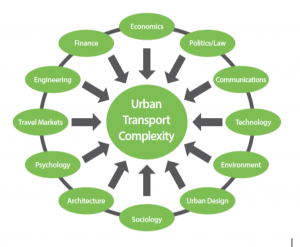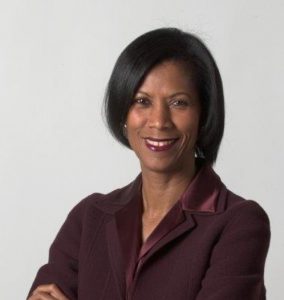“Cities have the capability of providing something for everybody, only because, and only when, they are created by everybody.” – Jane Jacobs, The Death and Life of Great American Cities
The built environment often does not meet the needs of all community members, so intertwined are the physical and social dimensions of public spaces. For example, where you live in the United States can determine your upward mobility. Even transportation is essential for escaping poverty.
In my hometown of Atlanta, Georgia, which has been the focus of multiple spatial planning studies due to its disparities in race and income, the transportation issue has been key to understanding why some groups lag behind. My own lived experiences perhaps confirm that the place I’ve called “home” carries the baggage of historical planning and policies that have had permanence throughout the region. For me personally, transportation has been a determinant in my education, opportunities, and safety.
determinant in my education, opportunities, and safety.
Urban transportation planning is already complex. It requires strong and cooperative institutional structures. The field needs expertise across multiple disciplines and requires a wide range of skills and capacities.
That’s why it matters to me to see leaders in the field who possess the skill set and capacity to develop and implement multi-sectoral approaches to tackle transportation problems in our cities. History has been telling us that it will take more than hard skills to overcome the planning challenges of the 21st century. Increasing diversity in the planning sector is crucial.
With this in mind, I recently sought to learn more about the path of a leader who’s tackling transportation, one of Metro Atlanta’s greatest challenges.
“Never doubt that a small group of thoughtful committed citizens can change the world. Indeed, it is the only thing that ever has.” – Margaret Mead

Andrea Foard is Transit Division Manager/Deputy Director for the Cobb County Department of Transportation and its transit division, CobbLinc. Cobb is Atlanta’s third fastest growing county in the 29-county metro. From 2016 to 2017, the county added 12,800 new residents. Cobb County’s growth makes Andrea’s role as Transit Division Manager/Deputy Director more important than ever.
CobbLinc provides local and fixed route commuter and paratransit bus services for the mainly low-density, suburban county on the periphery of Atlanta. In addition to providing mobility for people with disabilities, CobbLinc moves transit-dependent residents through the county and provides an alternative to driving in Atlanta’s notorious traffic.
As Transit Division Manager/Deputy Director, Andrea manages the contracted daily operation and maintenance for Cobb’s transit system and plans for system enhancement and expansion.
In January of this year, Andrea was named as one of “100 Influential Women to Know” in Georgia’s engineering community. These women reflect the changing course in transportation planning, and I was so fortunate to talk to Andrea, whose leadership, career path and drive has led her to challenge the complexities of urban transportation planning.
“Leadership and learning are indispensable to each other.” – John Fitzgerald Kennedy
Andrea Foard’s professional career began in STEM. She received her degree in civil engineering from the University of Alabama-Birmingham. During her senior year, she interned at a local consulting engineering firm in Birmingham, which provided an opportunity for her to move to Alpharetta, a city north of Atlanta.
In a small office of engineers, planners, and GIS analysts, Andrea initially started in roadway design, but she found her interests growing beyond design.
“After I started talking to more staff, I became a lot more interested in what was happening before the projects got to me,” she recalled. She was curious, “What was more of the planning side?”
While continuing to work on roadway designs, Andrea allowed her curiosity to embrace new aspects of planning, like the environmental side. She gained diverse experiences working with the City of Atlanta on its Sanitary Sewer Overflows and working on the Atlanta Greenway Project.
With work experience under her belt, Andrea continued her education at Georgia Tech’s School of Urban and Regional Planning. After graduating, she worked with leading engineering and transportation consulting firms, including Kimley-Horn, Parsons Brinckerhoff, and WSP.
As a consultant, she was able to continue broadening her multi-sectoral background in land development, civil site projects, and completing construction documents for commercial and residential projects in the City of Atlanta and Metro Atlanta. Her segue into transportation occurred around ten years ago.
Andrea’s time as a consultant contributed significantly to her leadership. As she described the various projects she has been involved with previous to her current position, I realized how intentional Andrea has been in exercising her commitment to being a planner and problem solver. Presently, she is working towards another masters degree in real estate finance and development. Her interdisciplinary background equips her to handle the biggest challenges in cities, and create solutions that overcome their difficulties.
“Successful leaders see the opportunities in every difficulty rather than the difficulty in every opportunity.”– Reed Markham
 Atlantans spent an average of 70 hours in traffic jams during peak travel times in 2017. Any commuter from the metro region will tell you that traffic is the worst part about completing daily tasks in a car-dependent city. Andrea’s role in Cobb’s Department of Transportation requires innovative thinking and constant collaboration as one system in Atlanta’s transportation mosaic.
Atlantans spent an average of 70 hours in traffic jams during peak travel times in 2017. Any commuter from the metro region will tell you that traffic is the worst part about completing daily tasks in a car-dependent city. Andrea’s role in Cobb’s Department of Transportation requires innovative thinking and constant collaboration as one system in Atlanta’s transportation mosaic.
When asked about translating her daily experiences in the city into her daily work, Andrea acknowledges her role requires doing something previous planners in the region didn’t do. Thinking about the future has become fundamentally important, in addition to dealing with Atlanta’s present transportation issues.
“Atlanta is a great city, but the traffic is terrible! The city and the metro region has a lot to offer, but with the number of folks expected to move here in the next twenty years, it’s going to be a lot to bear without a transit system regionally that can support its growth. We can only build so many roads.”
Andrea must confront the ideologies that have contributed to Atlanta’s current transportation dilemma and prepare for the unexpected to ensure that CobbLinc users are able to efficiently move across the county and the metro region. “It’s always the hindsight. All the things we could have done now that we have different development patterns,” she says, reflecting on how the nature of transportation planning has evolved with urban form.
In planning county transit systems, like CobbLinc, Andrea has to think about the different populations transit must serve or could potentially serve. “We have to think about how it can be convenient and reliable for them. If they are choice riders, and they gave up their cars, we need to get them to where they need to be.”
It is not an easy task to create an equitable system while trying to reduce Atlanta’s congested roadways.
“There are three essentials to leadership: humility, clarity and courage.” – Fuchan Yuan
Andrea Foard’s career path and valuable perspective in urban transportation planning makes it no surprise that she is considered an influencer in Georgia’s engineering community. I also do not take for granted how important it is for me personally to talk to a woman of color who has navigated through a traditionally male-dominated field. Women make up less than 13% of the total workforce in transportation-related occupations such as urban and regional planning, civil engineering, architecture, surveying, and construction management.
I wanted to know what Andrea thinks about breaking down barriers. It has alway been a point of uneasiness for me that in addition to female and minority underrepresentation, gender-based stereotyping or exclusion may still be a challenge.
She answered with positivity. “In the past handful of years, I’ve seen more females move into leadership positions, which has been great. When I go to meetings it’s not just other older seasoned men who have been in the industry forty-plus years. I’m starting to see the fifteen-year professional women, and some diversity, leading planning groups, offices, and CIDs (Community Improvement Districts).”
She referred me to the January issue of Engineering Georgia where she was featured. If you look through the publication, you can see she’s absolutely correct. Andrea and her fellow honorees all hold high-ranking positions in engineering, architecture, construction and more.
“It is encouraging to not just see the same faces, and not feel like you’re the only woman, or African American female, or the youngest person in the room when you go to a meeting. Hopefully when I go to talk to people, or go to meetings, somebody else who might be in school can say they are seeing diversity that I didn’t see when I was starting out.” Andrea told me.
I can assure Andrea that to a young woman like myself, seeing her at meetings, or on a list of influential women, truly does matter. From STEM professions to our governments, female representation has a role in inspiring people of all ages. For years, policy-makers, urban planners, or city engineers have not reflected the diversity in the cities they built.
For example, whether in the United States or abroad, the built environment was not designed for women. In the case of transportation planning, women’s safety must be taken into account. This is a perspective transit agencies wouldn’t have if women leaders with holistic thinking and planning like Andrea Foard didn’t have a seat at the table.
“If your actions inspire others to dream more, learn more, do more and become more, you are a leader.” – John Quincy Adams
Finally, I asked Andrea about a mentor who made a difference in her life, and ways that she has served as a mentor herself. She connected her current success as a mentor with the leadership she observed in a former professor.
“Network within industry organizations, get involved, and find a mentor, or mentors… Since high school, college and at [Georgia] Tech, I always found people who were doing interesting things, talking to them and wanting to know, ‘How did you get into this position?’ ‘What led you to this?’”

When identifying her own mentor, Andrea reflected back on her time as a masters student at Georgia Tech. “I don’t think I had my first African American female mentor until I was at Tech.” Andrea was referring to Dr. Catherine Ross, an internationally recognized expert on transportation systems planning, urban planning and quality growth, and director for Georgia Tech’s Center for Quality Growth and Regional Development (CQRD), where Andrea worked her second year as a masters student.
She continued, “To see her in action and to know she was the leader of this [the CQRD], she’s a professor, she travels and speaks, she’s an industry expert… I was in awe of her. She probably doesn’t know it, but she was the first black female [in the field] I saw and I realized, she has achieved a lot. She is well respected.”
The respect Andrea holds for Dr. Ross provided tremendous comfort to me as I listened to her. It was a confirmation that yes, representation in leadership matters and it has a cross-generational impact.
When I asked Andrea what advice she had for me as a young woman who is interested in joining the transportation planning and policy field, she shared these special words with me: “Whatever the setting may be, don’t be afraid of what you know, and don’t be afraid to express your opinion… You know what you know and nobody can change that.”

